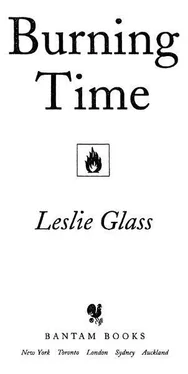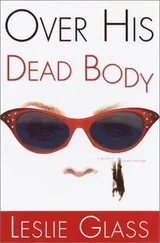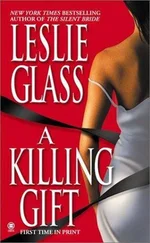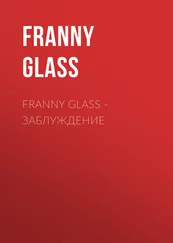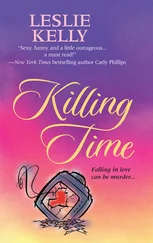Martha clicked her tongue against her teeth. “You’re not supposed to give her address. She wanted to be lost, Skipper. You know that. She went away and didn’t ever want to come back. It’s hard.” Martha shook her head, sadder this time.
“But you don’t argue with Emma. She does what she says. She’s a sweet girl,” she added apologetically, “but if you hurt her, she’ll just cut your heart right out.”
Jason nodded. She would indeed. And what had hurt her here in Coral Beach that she hadn’t told him about?
“Don’t go on about it, Martha. If the girl doesn’t want to go, she just won’t go. What about it, Jason? She coming to that reunion or not?”
“I don’t think so, Skipper. Was there anybody else who wanted to get in touch with her recently?”
“Other than the guy from the school, uh-uh.” Brad shook his head.
After a while, Jason had a glass of orange juice fresh from the tree in the yard, thanked them, and headed south to his hotel.
31
April had been sitting in a booth at Noodle Palace, looking at her watch, for nearly an hour. Jimmy was now so late she had to conclude something must have come up. Something coming up in police work was a fact of life no one who knew anything about the police department could argue with. But today there was the smell of something bad in her nose, as her mother would say. Only it wasn’t really her nose. Her nose and every other part of April felt good being in Chinatown.
Almost as soon as she got off the subway, she saw somebody she knew. A woman she had helped a long time ago trotted up to her on the street and showed off her grandchild.
“Very pretty,” April said, stroking the child’s petal-smooth cheek with one finger.
“No, no. Not so pretty.” The woman frowned critically at the exquisite three-year-old, dressed in an expensive padded silk jacket and embroidered shoes. “But very smart. Smart more important than pretty.”
April nodded. “But she’s pretty too. Pretty doesn’t hurt.”
“You nice girl. Why I don’t see you no more?”
“I work uptown now,” April said.
“Oh, too bad.”
April agreed, as she went into the Noodle Palace on Mott Street and chose a booth in the window so Jimmy could see her right away. Often someone walked by and smiled at her, showing they still remembered her even though she hadn’t been working here for nearly a year.
As she wondered where Jimmy Wong was, and analyzed his behavior lately, she watched what was going on outside on the street. She’d been a cop so long now she couldn’t look at people without memorizing their faces, watching their movements, looking for trouble.
She observed a brownie, a traffic cop, stop a van and pull the driver over. She couldn’t witness that kind of thing anymore without thinking of the last case she had down in the 5th. A traffic cop just like the one out there now, a Hispanic, had been threatening newly arrived Asians with jail, or deportation, or both, as a result of his giving them a ticket, if they didn’t pay him off. She asked around and found four or five victims, persuaded them to testify. They got him. It felt good thinking about that even though it wasn’t so hard to find out things down here. People had trusted her.
It was a whole different thing Uptown. She had so many things to learn. She pushed the teacup away with irritation, as she thought how hard it was to do things right. A lot of the cases they had Uptown she couldn’t even begin to solve. She had faxed Ellen Roane’s dental records to Dr. Milton Ferris, the Coroner of Potoway Village. He probably had them by now. She also faxed Ellen Roane’s prints and everything that could be transmitted through the wires. The few X rays there were had been sent by overnight mail and would be there tomorrow.
She wondered what kind of place Potoway Village was. Was it some old Indian site where they once threw their pots away, sacrificed them to the Gods for rain, or something? She had talked briefly to the sheriff. He had a rich, rumbly voice and said the country around it was hills and high desert. The village was several thousand feet up. There was no hotel or motel in town, no place for transients to stay. The people who had houses there were pretty well off, generally older, he told her. What was a city girl like Ellen Roane doing there?
Sheriff Regis told her that bikers liked to ride out there on the rough terrain. He also said they had a similar case three months before about forty miles south, and both dead girls appeared to have been branded and abandoned. It was an unusual sort of situation. More commonly in crimes of this nature, the girls would be killed and then mutilated. This guy seemed to be a mutilator, but not a killer. They didn’t know if he was a rapist.
Well, if the body in Potoway Village turned out to be Ellen Roane, April would send Regis more pictures of the girl so he could start looking for people who had seen her.
Only seventeen days had passed since Ellen’s last credit card charge. April had called the stores to check the receipts and find out what each one was. The last charge was a bathing suit, a skimpy red-and-gold Cole of California bikini, on sale for $34. The salesgirl actually remembered Ellen. She told April that Ellen had a gorgeous body, but no, she had had no idea where the customer was staying. The other items Ellen had charged were three San Diego T-shirts from San Diego Tee for $38.69, a white leather belt from Fashion City for $46, a lipstick, shampoo, and conditioner from Kay Drugs for $15.76, and two dinners at the Beach Café on the night she arrived and the next night, for $19.42 and $15.73 respectively.
April had spent a lot of time studying the two photographs Jennifer Roane had given her of Ellen. Ellen’s fine Caucasian features framed by her golden mane of wavy hair, her unclouded eyes and perfect figure, troubled April. All her privilege showed in the eyes. Ellen Roane had had no reason to be afraid of anything when those pictures were taken. There was no tension in her anywhere.
She had the kind of curves and curls April would give a lot for. Also the room at college with its printed bedspreads and no mother around to nag. There was a time April would have given a lot for that, too. But her parents wanted the house in Queens, so she went to work instead of to college.
Well, maybe Ellen was all right. Maybe she did know enough to be afraid. Anyway, with those looks there were sure to be other people who remembered her. Her luggage had to be somewhere. It wouldn’t be hard to find if only someone tried.
And then there was the Chapman case. How could there be a biker’s symbol on all the letters from San Diego, and a whole lot of references to branding? The coincidence of two women in her precinct both being involved in different cases with bikers from San Diego was too freaky. On the other hand, a connection between them didn’t make sense. Writing and branding were not the same kind of activity. It occurred to April that he might have written Ellen Roane, too.
Her heart started beating faster as she considered the possibility that the biker might not come from San Diego. He could be from here. Two women in this precinct pointed to the possibility that he knew them from here. Maybe he even went with Ellen Roane to San Diego, had a fight with her, branded her, and left her in the desert.
At the same time as he was writing letters to Emma Chapman? Not so likely. And three months before that he had done the same thing to another girl, also in San Diego?
No, it couldn’t be the same guy. But April made a note of calling to ask the two California coroners for a rendering of the burn on the two dead girls to see if it was anything like the drawing on the letters. She would also go back to Ellen Roane’s room at the dorm and check out if she had received any letters there. Her roommate would know that. With a jolt April realized that she didn’t know what Emma Chapman looked like. She hadn’t seen the movie. She was working without any sense of the woman at all.
Читать дальше
